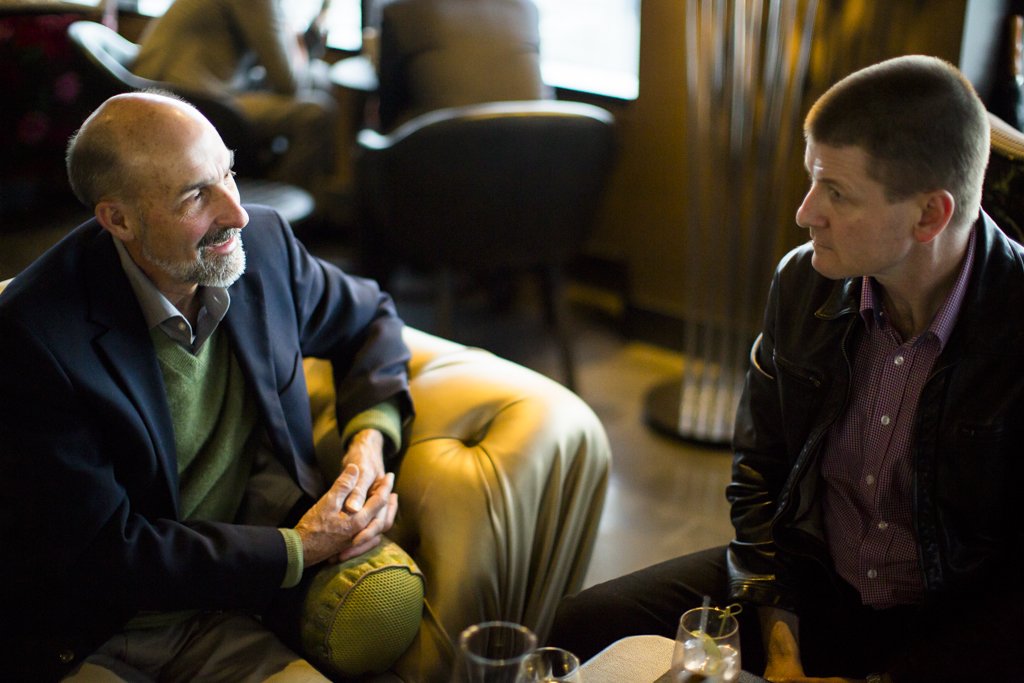
Enhancing CBT
Practice
-
200
TOTAL PUBLICATIONS
-
23
COUNTRIES RECEIVING TALKS
-
6
BOOKS FOR CLINICIANS
-
19
JOURNAL SPECIAL ISSUES EDITED
BRIDGING THE scientist practitioner gap
“Each of us is a clinician first and a researcher second. We never lose sight of the privileged position we have in supporting a person one-on-one in the consultation room. Everything we do is about optimizing therapy practice.”
— Nikolaos Kazantzis, Ph.D.
CLIENT ENGAGEMENT
Meta-analyses by CBTRU have demonstrated that high levels of client engagement with between-session therapeutic tasks significantly enhances CBT outcomes. CBTRU has developed the world’s first conceptual model and process-focused protocol for enhancing engagement in this context. CBTRU’s client feedback measure has been translated into multiple languages, adapted for technology platforms, and together with CBTRU’s protocol, formed the foundation of multiple NIMH grants for clinical trials. CBTRU has also developed the world’s most comprehensive measure of therapist behavior in facilitating client engagement, which allows the clinical trial researcher to examine theoretically meaningful determinants of client engagement that in turn predict CBT outcomes. (Image Credit: Dr. Aaron T. Beck, pioneer of “Cognitive Behavior Therapy” with Dr. Kazantzis)
Collaborative Empiricism
The therapeutic relationship is crucially important for CBT; comprising both generic qualities of emotion-focused empathy in a broader concept of working alliance, as well as those qualities that are specific to CBT — such as collaborative empiricism. CBTRU has developed the world’s first measure of collaborative empiricism, which relies on objective assessment by trained observers. (Image Credit: Dr. John Tee [right], CBTRU Alumni, primary researcher and author of the “Collaborative Empiricism Scale” with Dr. David A. Clark [left].”
Socratic Dialogue
Socratic dialogue is a feature of the therapeutic relationship in CBT, used by therapists, to identify new information, facilitate new perspectives, and support clients in gaining clinically meaningful discoveries. CBTRU has developed the world’s first measure of Socratic dialogue that considers the extent to which the therapist has had an influence on the client’s discovery, and relies on objective assessment by trained observers. (Image Credit: Dr. Matt Stuckey, CBTRU Alumni, primary researcher and author of the “Socratic Dialogue Scale.”
Change processes
CBT includes a range of change processes, ranging from emotion identification and coping, cognitive reappraisal, and context engagement, to name but a few. Change processes are embedded within the techniques of therapy, but vary based on the clinician’s adaptation for the client’s presentation. CBTRU has developed the world’s first measure capable of identifying the target of techniques, and their tailoring for the client. (Image Credit: Dr. Alex Petrik, CBTRU Alumni, primary researcher and author of the “Cognitive Therapy Orientation Scale.”
Contact
Feel free to contact us with any questions about our research.




